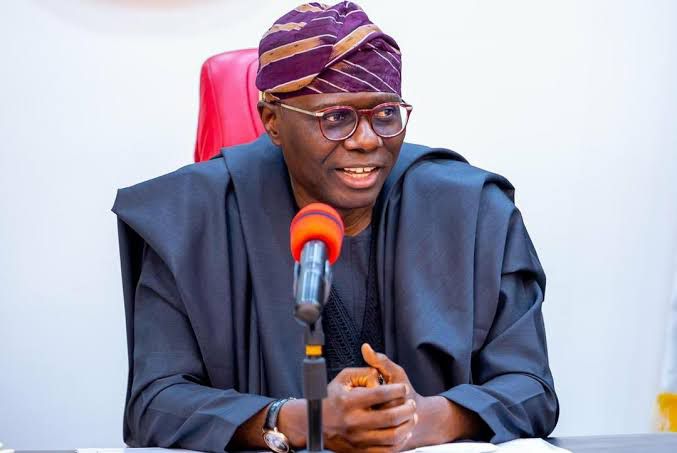The spending spree by governors must stop
At a time the majority of Nigerians are languishing under the debilitating effects of harsh economic measures imposed by the President Bola Ahmed Tinubu administration, governors of the 36 states, who benefit substantially from the policy, especially that of subsidy removal, appear to have embarked on a spending spree. Though foretold, the expenditures tracked in […]

At a time the majority of Nigerians are languishing under the debilitating effects of harsh economic measures imposed by the President Bola Ahmed Tinubu administration, governors of the 36 states, who benefit substantially from the policy, especially that of subsidy removal, appear to have embarked on a spending spree. Though foretold, the expenditures tracked in recent media reports, including those by the Daily Trust newspaper, include the funding of unnecessary non-capital and non-salary overheads that consume bogus and indefensible sums of money.
The Lagos State Governor Babajide Sanwo-Olu’s N289.49 billion non-salary expenses elicited national outcry, but it was apparent that many other state governors engaged in the inordinate spending that did not cushion the effects of the bitter pills of this government’s economic policies, which the masses have to swallow.
The expenses are sundry in nature, but some of the abhorring ones include the hiring of private jets for many needless travels; purchase of luxurious vehicles for long convoys; funding of glamorous first ladies’ activities; engagement of thousands of do-nothing political aides; unnecessary donations; purchase of flowers to decorate parts of states, unaccountable security votes; and the like. Most of the expenses were meant to fund the lavish lifestyles of governors, instead of being targeted at assisting the people to cope with the current difficult economic conditions.
The removal of the subsidy on fuel and the floating of the Naria, enlarged the coffers of the three tiers of government, as much more cash became available for them to share every month. For instance, in May 2023, the three tiers shared N655.93 bn, but as at July, the amount available for distribution among them climbed to N1.9 trillion, an increase of over 200 per cent. Since then, the government has consistently shared an average of N1 trillion among the 36 states, an average of N28 billion per state, every month. The total revenue of 50 percent to the 36 states come from this monthly allocation from Abuja; about 13 states rely on the federal transfers for about 70 per cent of their total revenues. It is, therefore, incomprehensible that state governors have prioritized frivolous spendings to investment in schemes that could create wealth, employment and boost their Internally Generated Revenues (IGRs).
- Kwara to raise N10bn from philanthropists, private sector for education
- Over 1,000 youths, couples undergo marriage counselling in Kano
Most unfortunately, this spending spree is going on at a time when the majority of the people are gnashing their teeth under the dangerous inflationary trends that have made life practically unbearable. In recent weeks, the high costs of essential pharmaceutical drugs and other commodities for health care have come under focus. Most of the essential drugs are no longer affordable, no thanks to the cost of importing them, which is now prohibitive due to the floating exchange rate policy of the government. When the high cost of medicine is added to the abnormal cost of food items, it becomes apparent that the people are faced with severe difficulties that require interventions by governors who access the funds so-called saved from measures that make life unbearable for the people.
The governors cannot continue to live as if they are in a different world. They cannot continue to be oblivious to the realities of majority of Nigerians, who at the moment cannot afford decent meals on their tables. When the subsidy was removed, the idea promoted was that it would help free up money for development, not to fund the extravagant lifestyles of leaders. We, therefore, call on state governors to apply the funds to those things that could ameliorate the difficulties being faced by the people, instead of on the wild non-salary expenses.
The Economic and Financial Crimes Commission (EFCC) and the Independent Corrupt Practices and Other Related Offences Commission (ICPC) may not be able to go after the state governors for the wasteful spending because sitting governors have immunity from prosecution. However, the legislature at the state level must play a role in stemming this profligacy. It is clear that the spending spree is taking place as a result of the failure of the states’ Houses of Assembly to perform their oversight functions. We call on them to wake up to their responsibilities. The failure of state legislators to scrutinize the budgets and strike out most of the frivolous line items has given liberty to state governors to carry on with the wild spending without restraint. States’s Houses of Assembly must play their constitutional role to ensure transparency and accountability in governance.
Also, we call on the Nigeria Governors Forum, headed by Governor AbdulRazaq AbdulRahman of Kwara State, to organize a special parley on the ongoing wasteful spending by its members. The governors must come to a consensus on how to alleviate the current suffering among the people, instead of feasting and wasting away resources that should have been utilized in tackling the existential crisis in the country.
